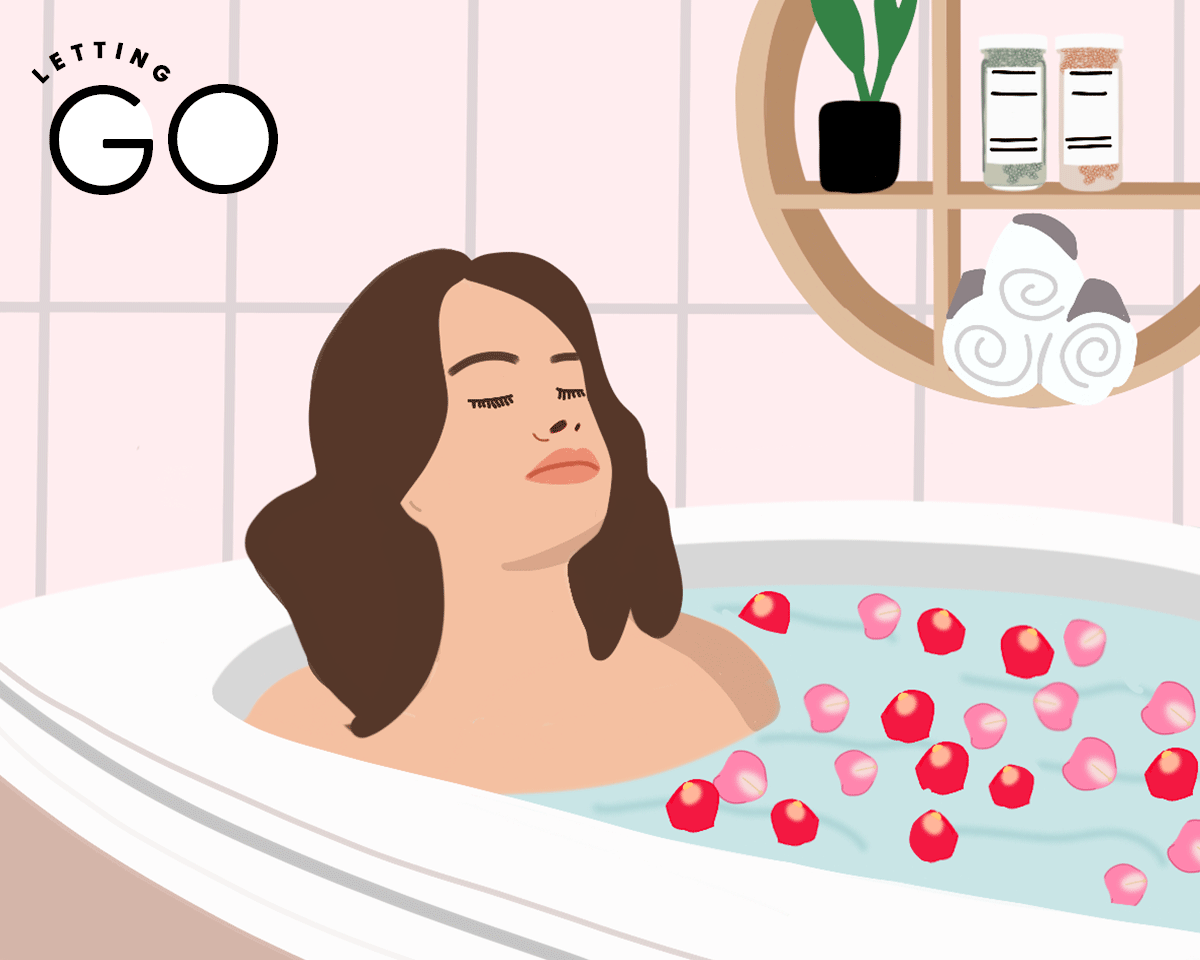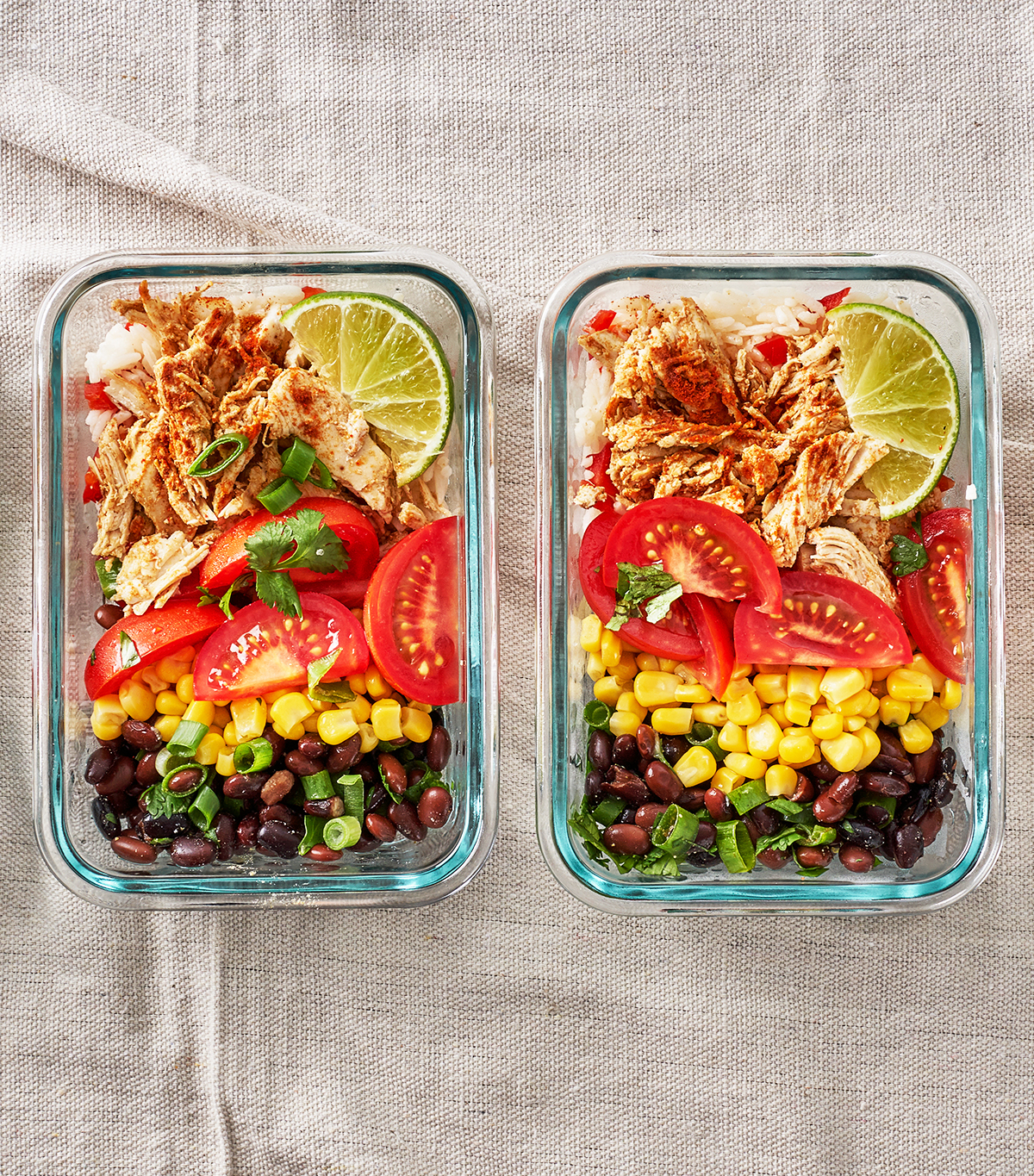An Expert Taught Me How to Let Go of My Food Shaming


What does it really mean to let go? When we turned this question over to our editors and readers, their responses proved that grief, catharsis, and rebirth comes in all forms—whether it's finally moving on from a failed relationship, rebuilding oneself after a painful trauma, or quietly saying goodbye to the person you once were. Our series Letting Go highlights these compelling and complicated stories.
When you're admittedly addicted to being the best in every aspect of your life, it's nearly impossible to silence self-criticism. My thoughts are the hardest thing to control. Even coming to terms with the fact that I continuously come down so hard on myself for certain food choices is something my mind is still grappling with as I type. The way that I think about food has transformed over the last year, translating to an even closer relationship with what I put into my body.
I've always secretly loathed certain parts of my body. Outwardly, people often perceive me as a very confident woman, which I am. But I'm not in utter love with every single part of my body, and I'm okay with that. At the start of 2017, I decided to actually do something about it. I prioritized health more than ever before. For the first time in my life, I began working out on a regular basis and changing my eating habits. In actuality, I didn't eat horribly before cracking down on my diet last year; I just ate more loosely.
This time, I decided to cut out all soda, unnecessary sugar, all fast food, and most meats from my diet. I began eating a plant-based diet that consisted mostly of salmon, protein, vegetables, and whole grains. This health-conscious evolution resulted in a newfound love for cycling, a short-lived yet rewarding journey of vegetarianism, and the confidence to wear a bikini in public for the first time after losing over 20 pounds.

I loved seeing changes in my body, and the steady stream of compliments I received from others felt so validating. I finally felt like I was reaping the benefits of my dedication to health. A huge part of my wellness journey was in how differently I approached food, which became way more rigid and strict. I don't necessarily count carbs, but calories and potential pounds are at the forefront of my mind every single time I eat now. On weekends, I meal-prep breakfast, lunch, and dinner, which saves so much time, money, and energy on what I'm eating during the week. I stick to low-carb meals.
I grocery-shop every two weeks and stock my fridge with mostly organic options. I thoroughly read food labels and don't tempt myself with anything I know I shouldn't be eating. This way, even when I'm fighting a sugar or unhealthy craving, I won't have the option of going in my fridge to eat it. (After five days of mostly greens, I'm always itching to indulge in my favorite foods.)

By Saturday mornings, brunch is calling my name. I allow myself to eat however I want on the weekends. Sometimes I'll go to brunch on Saturday and Sunday, for the fun of it and the endless champagne and social banter, of course. Then, I'll order Seamless from my favorite Thai or soul food restaurant in my neighborhood. Plus, I have all the sugary drinks my heart desires when I go out.
This so-called "balance" comes with a price. When I'm eating like this on the weekends, I'm relishing in the delicious tastes I've been yearning for in the moment, but afterward, a deep sense of shame arrives, flooding my mind with defeating thoughts: Why would you eat that? Wait until you step on the scale in a few days and see that you've gained weight. You're going to feel sick afterward. You ate healthy this week for no reason, to throw it all away for this. These thoughts show up every time, without fail. It's like an ongoing battle with my mind.
In an effort to stop food-shaming myself, I talked to Laurie Cousins, a mindfulness educator, mind-body practitioner, and teacher for the meditation app Evenflow. Her advice on how to stop food shaming has put my mind more at ease, and if this is something that you deal with, hopefully it will do the same for yours.
Where Food Shaming Comes From…
"For many, [food shaming comes] from people with good intentions like our parents, caregivers, and culture," explains Cousins. "Generations pass down what they learned and many times don't question if it is true for themselves, let alone their child. When it comes from a place of people being unconscious about their own ideas or behavior with food, they can try to control children's choices and eating from a place that is critical, rigid, and even punitive."
"It's a combination of many things: how you were raised, what messages you got about food, weight, and body image," Cousins continues. "A lot of it is based on conditioning patterns that are simply passed down through generations that emphasize the 'right' way to eat, types of food, body size, etc. From a societal stance, it can be about the pressure from one's culture to fitting in and conforming to social norms. Also, consumerism and capitalism play a big part in food shaming by creating advertisements and bombarding the public with messages of 'perfectionism' that are unattainable and create a sense of being incomplete."
Take the Critical Judgment Out of Food
"Practice taking the critical judgment out of food as good or bad, and approach food as what it is: just food," suggests Cousins. "Actually, it's more about our relationship to food that is the challenge or the imbalance with it, which is more of a reflection of our relationship with ourselves. When you come from a place of mindfulness, you can become the observer of your experience and choose how to respond to food shaming from yourself or others, instead of habitually reacting."
Practice More Mindfulness With Your Relationship to Food
"Take a mindful pause and check in with yourself," says Cousins. "Take some breaths and build a new relationship with yourself where you become your ally. From this place of self-compassion, you can choose to not listen to the old thought patterns that are shaming, and instead focus on discovering how to support yourself like you would a close friend. You can ask yourself What do I need? or What is my intention? What will make me feel the healthiest without pressure?"
Write Down Your Negative Thoughts
"As an exercise, write down what you normally say to yourself when you ate something 'bad' or were called out for not eating what everyone else is eating," suggests Cousins. "Are there any repetitive things that you say to yourself? Is there a tone to how you talk to yourself? Then see if this sounds familiar, like a parent or relative that was an authority in your life, and see it is similar to how they spoke to themselves. Many times our harsh inner critic comes internalize someone else's harsh inner critic."
Tune Out the Thoughts of Others
"You can practice reframing how people are responding to what and how you eat," explains Cousins. "Instead of taking it as a criticism can you hold it as being acknowledged for being someone who is being true to your goals. See if you can come from a place of observing people's reactions or comments as something that has to do with them and not over-identifying with their reactions. Take some deep breaths and give yourself some self-compassion and kindness, simply because it feels uncomfortable or challenging when people offer opinions, and remember this is your life and you are in charge of it."
In order to become more mindful about your thoughts when it comes to food, stress, or life in general, learn more of Laurie Cousins's teachings on Evenflow. Ge gentle with yourself and understand that it is a process, and you're not alone. I'm right there with you.

This article is provided for informational purposes only and is not intended to be used in the place of advice of your physician or other medical professionals. You should always consult with your doctor or healthcare provider first with any health-related questions.
